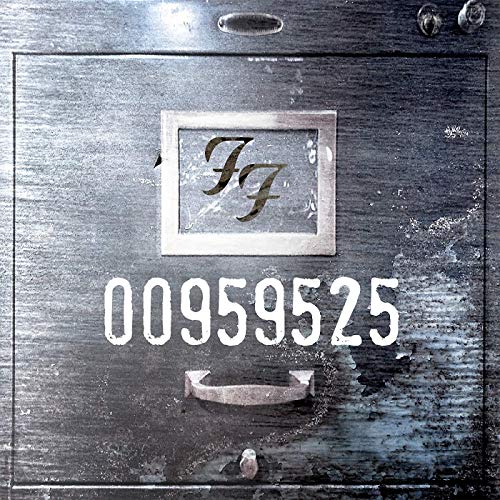Foo Fighters’ “00959525” offers consistency but lacks originality

Roswell Records
The Foo Fighters’ new EP does a good job of sticking to their roots, but fails to attempt any new and exciting ideas.
February 20, 2020
The Foo Fighters EP “00959525” retains their original alternative rock roots in a strong and consistent album but fails to introduce new elements into their sound.
“00959525” was released on Jan. 3, 2020 as a surprise to fans. The album consists of four recorded songs and two live songs, and is the band’s eighth EP. The band has released multiple EPs with names that are arrangements of numbers, including “0979725” and “01050525,” both released in 2019. The origin of the number patterns are unknown but all three mentioned EPs were surprise releases. Unlike their previous works, this EP has two live songs at the end.
Not only does the name remain consistent with others, the band’s sound and production in this EP is also quite similar to their previous releases. With a consistent alt rock sound throughout the album, many of the songs blended into each other, making it hard to distinguish between them and previous releases.
The opening song of the EP, “Winnebago,” is very similar to the band’s previous songs like “Everlong” and “My Hero.” It contains a steady drum beat matched by a strong electric guitar and muffled vocals that a listener finds hard to make out. Opening the EP with this track seems appropriate as the listener is treated to familiar sounds characteristic of all Foo Fighters songs.
The familiarity of sound is also modeled in “Ozone,” the fourth song of the EP. “Ozone” offers very strong instrumentals. This track is free of electronic tuning and simple chord progressions which sets it apart from many modern alternative rock songs that contain strong pop influence.
These tracks are admirable additions to the EP because they remain close to the bands roots. In modern alternative rock music, when multiple bands have been transitioning to and incorporating immense amounts of pop influence into their music, it is exciting to hear tracks similar to core alternative values.
Although it’s refreshing to see bands that refrain from becoming overly commercial, the EP left something to be desired as nothing new or different could be heard in the sound of the songs. The instruments are very audible, and they don’t have too many effects on the vocals or instrumentals. While this is good because it’s a lot like their classic sound, it means that the Foo Fighters played it safe. An outlier to this criticism is “Podunk,” the second song of the EP, which introduces some new elements to the Foo Fighters repertoire. The track sounds distorted and plays at a heavier rock than the band has displayed before. The vocals are heavily distorted and electric, adding to the effect of the song, bordering on heavy metal.
In contrast to this hard sound, the third song on the EP, “How I Miss You,” delivers softer, audible and melodic tunes making it the best song of the release. The track starts out stripped of everything except guitar and builds to a thrilling instrumentation of sound. The track is also the best lyrically as it conveys an aching emotion of loss with lines like “How I hope that you still miss me/ Did I lose you?” earlier in the song and “Hide & seek’s alright if I find” later to add to a sentiment of hopelessness.
The album closes out with a live version of the band’s 1995 song “Alone + Easy Target.” Its similarity to “Winnebago” contributes to the feeling of familiarity established in the beginning. The likeness of a modern song to one released 25 years ago proves the Foo Fighters have stuck quite close to their original alternative rock sounds. Though this feat demonstrates strength and a strict adherence to alternative rock values, it is disappointing that almost nothing new was explored in this EP.
However, despite its shortcomings, this release is worth checking out as it is strong, admirable, fun and it does not sound anything like modern pop music. The album does right by alternative rock, even if it does sound slightly derivative of their other albums.






